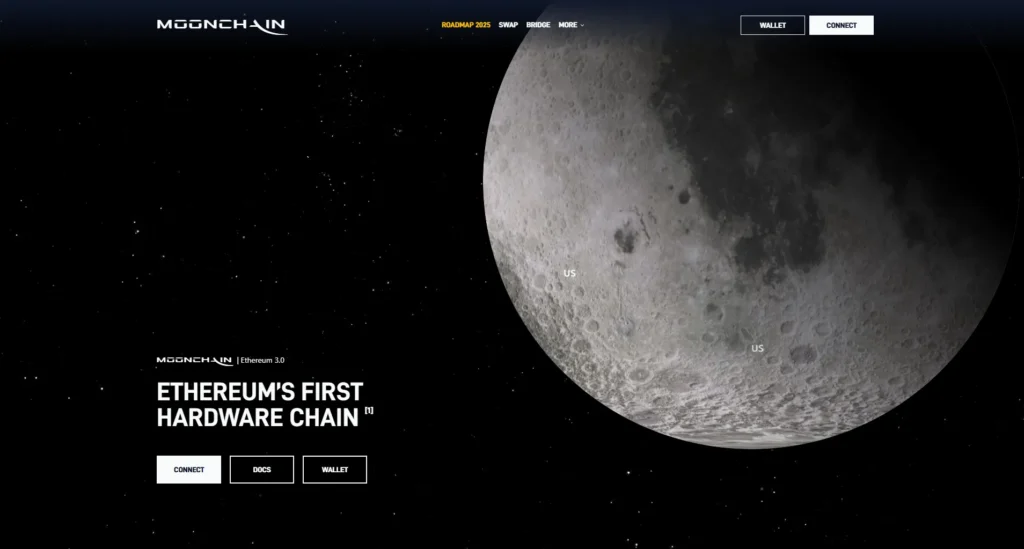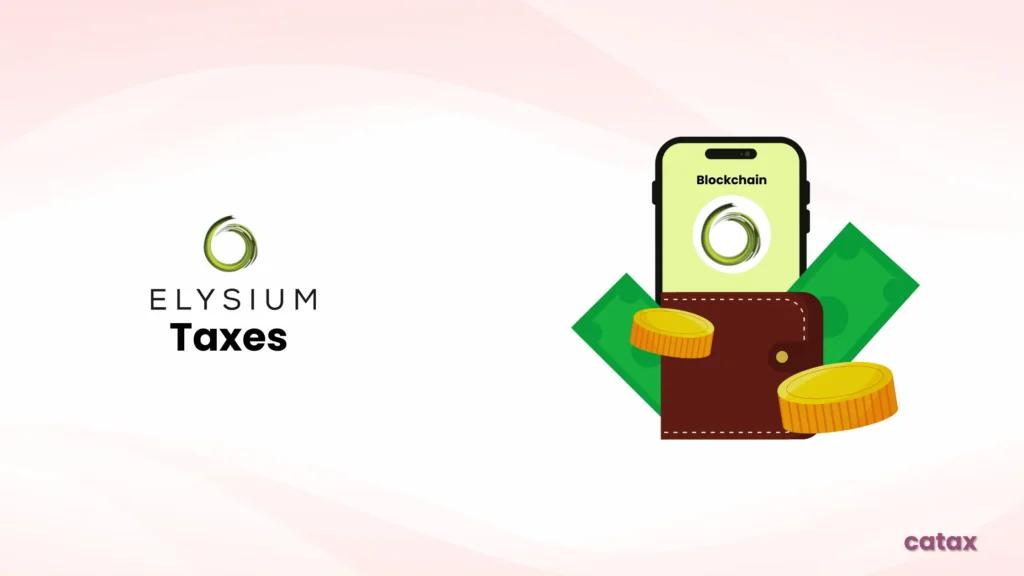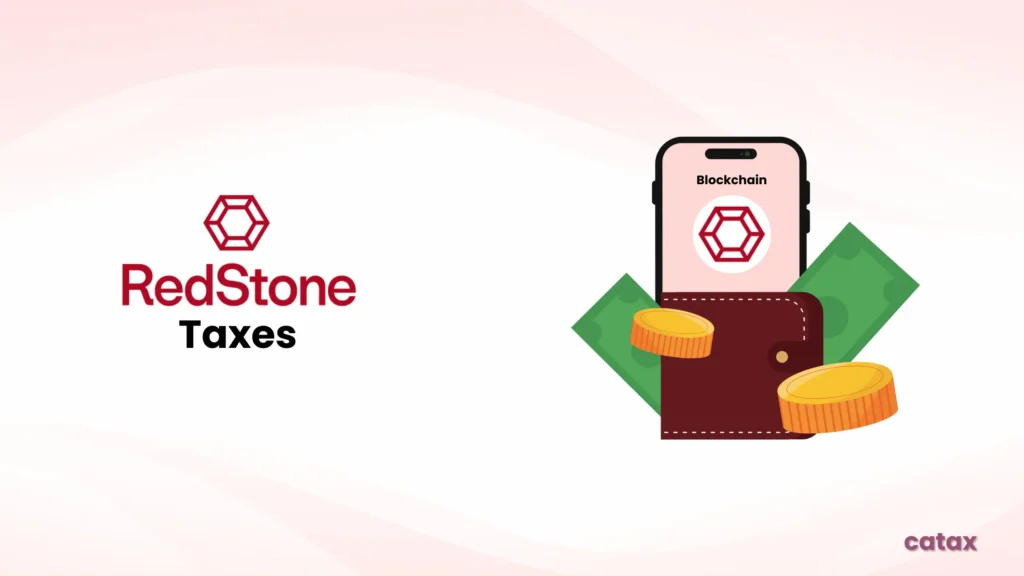Cryptocurrency tax rules vary by country, and MoonChain taxes transactions may be taxed differently based on local regulations. Whether you buy, sell, trade, or stake MOON, knowing how tax authorities classify these activities helps you stay compliant and avoid penalties.
This guide simplifies Moon Chain tax rules so you can handle your taxes confidently and stay compliant with the law.

- How to Connect Your Moon Chain Wallet to Catax?
How to Connect Your Moon Chain Wallet to Catax?
To effortlessly track your MoonChain taxes transactions and calculate taxes, follow these simple steps to connect your wallet to Catax:
- Open your Moon Chain wallet or access a supported block explorer.
- Copy your public wallet address from the Moon Chain wallet.
On Catax:
- Log in and select your country.
- Select Chain, then search for Moon Chain Wallet.
- Paste your public address and click Connect.
Once connected, Catax will automatically sync your MOON transactions, making crypto tax reporting easier and more accurate.
Calculate My Taxes ➤Are Moon Chain (MOON) Transactions Taxable?
Yes, in most countries, Moonchain taxes transactions are taxable. Depending on how you use MOON, tax authorities may treat it as a capital asset, property, or income.
When Do You Have to Pay Taxes on Moon Chain (MOON)?
You may owe taxes when you:
- Sell MOON for a profit – If you sell MOON at a higher price than you paid, the profit is generally subject to capital gains tax.
- Trade MOON for another crypto – Swapping MOON for Bitcoin, Ethereum, or any other crypto may be a taxable event.
- Use MOON to buy products or services – If MOON has gained value since you acquired it, spending it could trigger a taxable gain.
- Earn MOON through staking or workflows – MOON earned via staking or automation is often treated as income and taxed when received.
- Receive MOON as payment – If you get paid in MOON, the amount is typically taxed as income based on its fair market value at the time of receipt.
Since tax rules vary by country, always review your local crypto tax regulations before transacting with MOON.
Can You Deduct Trading Fees and Other Costs?
MOON users often ask if they can deduct transaction-related expenses. This depends on your local tax laws.
Some countries allow deductions for:
- Trading fees for buying or selling MOON
- Network/transaction fees for sending or receiving MOON
- Security costs like hardware wallets or key management tools
Others only allow deduction of:
- The purchase cost of MOON (your cost basis), without allowing extra deductions for fees or security tools.
Be sure to consult your country’s crypto tax rules to understand what’s allowed.
How Is Moon Chain (MOON) Taxed Based on Holding Period?
Your tax rate on MOON profits may depend on how long you held the tokens:
- Short-term holdings (< 1 year) – Usually taxed at regular income tax rates.
- Long-term holdings (> 1 year) – Some jurisdictions offer reduced tax rates for long-term crypto gains.
- Flat-rate systems – A few countries apply a fixed tax rate, regardless of holding period.
Understanding how holding duration affects your tax liability can help you optimize your crypto strategy and lower your tax burden.
You can also check out our Country-Specific Guide for Crypto in Your country. This guide provides insights on regulations, tax implications, and compliance measures breifly explained for each country.
How Is Staking Income Taxed for Moon Chain (MOON)?
Staking MOON tokens can generate passive income, but taxation varies by country. Some tax authorities impose taxes as soon as staking rewards are received, while others tax them only upon sale or exchange.
How Countries Tax Moon Chain Staking Rewards
- Taxed as income – In many jurisdictions, MOON staking rewards are treated like salary. That means you’re taxed when you receive them, based on their market value at the time. These are taxed at regular income tax rates.
- Taxed as capital gains – In other regions, you pay tax only when you sell or trade your staking rewards. In this case, only the profit from the sale is taxed, not the full amount received.
Some countries tax staking rewards even if you haven’t sold them, so it’s essential to know your local tax rules before staking MOON.
Can You Claim Moon Chain Losses for Tax Benefits?
Not all MOON transactions are profitable. If you sell MOON at a loss, you may be able to reduce your overall tax liability. Here’s how different jurisdictions approach crypto losses:
- Loss offsets – Many countries let you use MOON losses to reduce gains from other crypto or investments. You’re only taxed on net profits.
- Loss carryforward – If you don’t have profits this year, some countries let you carry your MOON losses forward to offset taxes in future years.
- Limited deductions – A few countries don’t allow crypto losses to be deducted at all. In these cases, losses won’t help reduce your tax bill.
Keeping clear, detailed transaction records is key to correctly reporting losses and maximizing available tax benefits.
How to Stay Compliant with Moon Chain (MOON) Tax Rules
With crypto tax regulations evolving, compliance is crucial to avoid penalties or audits. Here’s how to stay on top of your MOON taxes:
- Understand local tax rules – Know whether MOON is taxed as capital gains, income, or business earnings in your country.
- Maintain accurate records – Track every Moonchain taxes transaction including buying, selling, trading, staking, and spending.
- Use a crypto tax platform like Catax – Catax automates tax reporting, making it easier to manage your MOON portfolio and file accurate returns.
- Consult a tax expert – If you’re unsure about your obligations, a professional can guide you through your country’s specific crypto tax landscape.
Staying informed, organized, and proactive helps you manage Moon Chain taxes smoothly and responsibly.
Book a Free Consultation Now →

